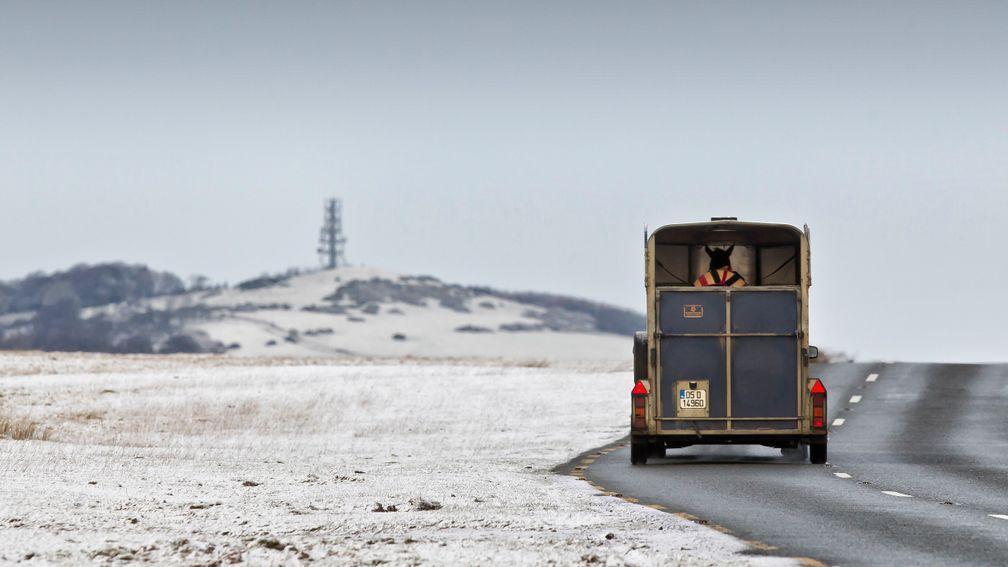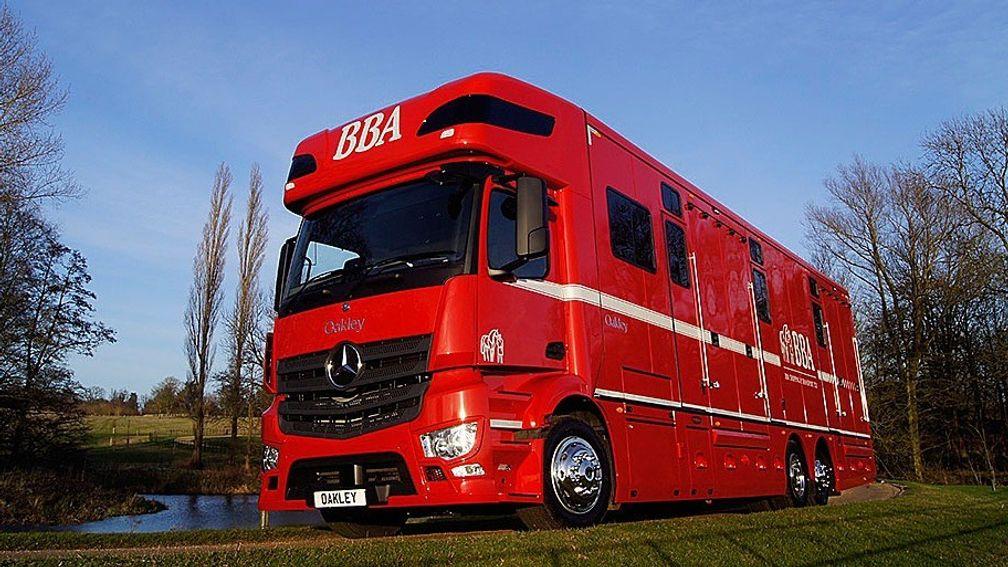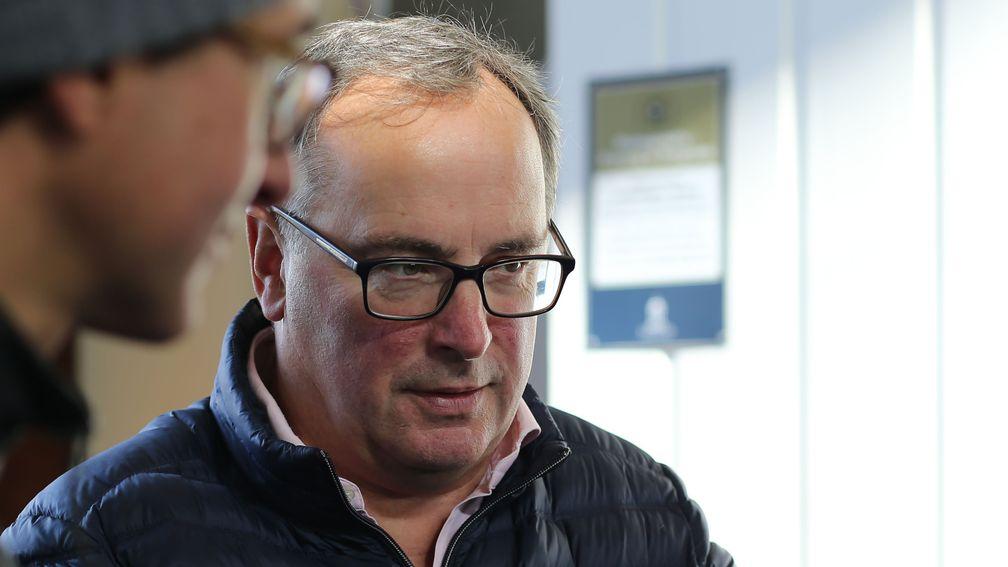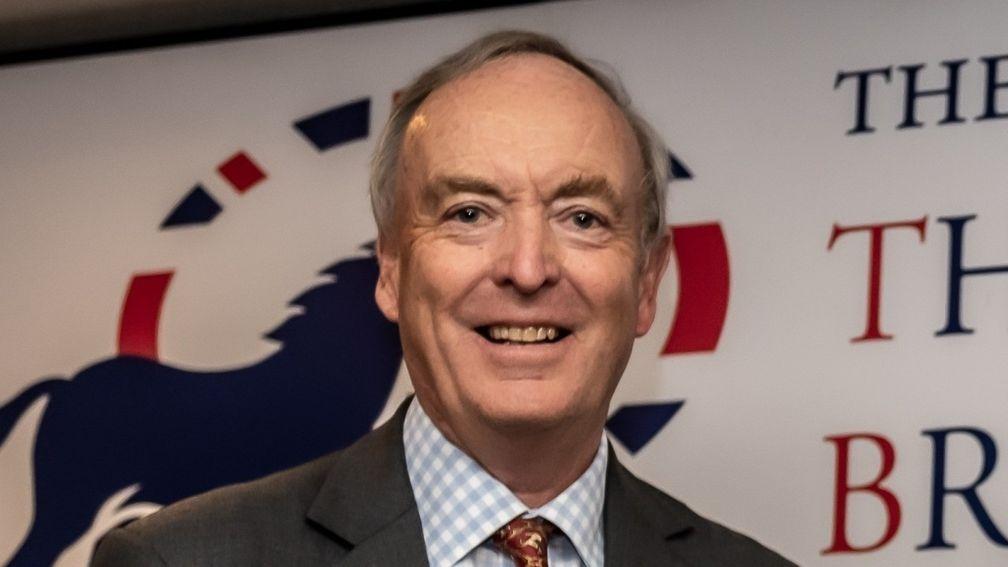'We've been chucked into the dark ages' - industry insiders on Brexit realities
James Thomas speaks to key industry figures ahead of the breeding season

At 11pm on December 31 last year, the Brexit transition period drew to an end and Britain bade farewell to the European Union. It was a historic event with myriad consequences, some more controversial than others, although none will have a more immediate impact on the racing and breeding industries than Britain no longer being party to the Tripartite Agreement.
This agreement recognised the high health status of British, Irish and French thoroughbreds and made travel between the three nations all but seamless. Now that Britain is no longer a member of the EU it has been granted 'third country' status. The implications are that moving horses between Britain, Ireland and France is now more expensive and less straightforward.
This issue is particularly pressing as Monday marks the traditional, but far from universally observed, start of the breeding season in Europe. Thousands of mares will be moved between Britain, Ireland and France during this period for the coverings that will yield next year's foal crop.
In the lead up to the Brexit transition period ending, the Thoroughbred Breeders' Association (TBA) issued advice that, unless strictly necessary, horses should not be moved to and from the EU for at least the first two weeks of 2021, while details of new travel arrangements became clearer.
Those details have now been brought into sharp relief, although not all industry stakeholders are enamoured with the outlook.
As managing director of BBA Shipping & Transport, Kevin Needham is among those dealing with these protocols on a daily basis. He says: "Things have become clearer since early January, but what we're seeing isn't terribly palatable.

"We've had 50 years of the Tripartite Agreement whereby thoroughbred horses could move between Ireland and France and the UK without any form of certification, so to wake up on January 1 and realise all horses now need an 11-page booklet, in duplicate, was a bit of a shock."
All thoroughbreds leaving Britain for the EU now require an Export Health Certificate (EHC), secured from an official veterinarian and complete with negative blood tests for a broad range of diseases, and must enter the EU via a border control post, where they will undergo documentary, identity and physical checks.
Thoroughbreds heading to Britain from within the EU also require an EHC and must have import pre-notifications submitted in advance of arrival. Which all adds up to a considerable amount of complex administration and a significant increase in costs.
"It's made something that people used to do very easily, as easy as jumping on a Ryanair flight and going to Ireland, a very expensive and time consuming process," continues Needham.
"Even as late as the December Sales all the talk was about how there'll be a deal and it'll all be fine. There was a deal, but it's a deal that affects other stuff, like fish and Gibraltar and Northern Ireland. It doesn't affect thoroughbred movement and we've been chucked back into the dark ages. We've gone back to a system that was far more complicated than it ever was before, including before the single market was formed in 1993.
"Of course the loser in all this is the horse itself as the delays can be excessive, especially going through Calais. There was a horsebox held up for documentary checks in Calais for seven hours the other day. We never used to have delays like that in the 1980s, yet here we are in 2021."
It is what it is
Moreover, breeders now need to raise funds to cover the VAT on the valuation of their mare when travelling between Britain and EU states, even if her export is temporary. Although these funds are released once the horse returns to its country of origin, this can take several weeks.
The TBA's tax expert Peter Mendham said that work is being done to simplify the process, but that any changes were unlikely to take effect soon.
"I think a lot of people were expecting a trade deal would take all this hassle away, but it didn't and in reality it was never going to," he says. "We'd like change and are talking to the government to see if there's anything we can put together to make this easier - I know the same thing is happening in Ireland - but in the short term it is what it is.
"We'd certainly hope to make some progress in making it easier for mares to come across to the the UK, certainly before the next covering season, but whether we can get any change this time around remains to be seen."
Both Needham and Mendham remain hopeful an agreement can be reached that would see protocols similar to the Tripartite Agreement introduced. However, both acknowledged that any developments would require buy-in from respective governments, and that thoroughbred movement currently ranked low on bureaucrats' list of priorities.
Friction-free memories
Although friction-free movement may feel like a distant memory for some, plenty of breeders are aiming to continue operating on a business as normal basis. Among those is Tom Blain, manager of Barton Stud, situated close to Bury St Edmunds.
Blain said Barton has felt the effects of Brexit, albeit the changes experienced have not necessarily been negative, while he does not see the challenges ahead as insurmountable.
"It's had an impact, but not necessarily in a negative way," he says. "We had quite a lot of mares come in December for organised European breeders who would normally send them in January or February - that was no bad thing.
"We had a slight delay for horses coming in at the beginning of January, but now things are very much back to normal and it's not going to affect our boarding business at all - we'll have the same numbers for the same clients."

Blain said mares from Barton were booked into Irish-based stallions such as Belardo, Dark Angel, Ghaiyyath, Kodiac, Make Believe, Mehmas and New Bay, and that the quality of the Irish stallion roster would remain an irresistible draw for British breeders, even if travel is more expensive and less straightforward.
"In terms of getting horses to Ireland, I slightly take the view that the world goes on," he says. "We had 19 mares due to go to Irish stallions and I plan to send all of them. Yes it's more expensive, which is a pain, it's probably doubled in price. But in the grand scheme of thoroughbred breeding it's not a huge cost and I believe in the matings we're sending the mares for, and for me that's what's more important.
"I know some people are panicking about this and changing their matings but I think that might be a little bit short-termist. Ultimately you have to mate your mares to the right stallions, otherwise you're going to regret it."
Battling on
Those feelings are shared on the other side of the Irish Sea at Ballyhane Stud in County Carlow, home to five stallions in Dandy Man, Elzaam, Prince Of Lir, new recruit Sands Of Mali and Soldier's Call.
The farm's owner Joe Foley was quick to acknowledge the efforts of various industry bodies in making the movement of horses easier, but said the increase in paperwork and additional costs would have ramifications for the wider industry moving forward.
Nonetheless, Foley issued a positive report with regards to British breeders rising to the challenge and sending their mares to Irish stallions.
"We're expecting quite a few mares from Britain this year and so far they all seem to be on course to arrive," he says. "We're very appreciative of British breeders who've fought the battle to get their mares to Ireland, it's encouraging and heartening to see the effort they've gone to."

As well as running Ballyhane, Foley is racing manager to Steve Parkin, who races under the Clipper Logistics banner and breeds from Branton Court Stud. Despite the challenges Brexit has posed, Foley says there was never any danger of location or politics influencing the mating plans he and Parkin put in place for 2021.
"Myself and Steve Parkin send mares to Britain to be covered and we're fully supportive of stallions who stand in England," says Foley. "When we were doing our matings we paid no attention to the location or Brexit implications, and I'm pleased we didn't as we're still able to move the mares to where we need to.
"I think everyone should be able to mate their mares to the best of their ability to try to breed the best horse they can, whether that's by visiting Lope De Vega in Ireland or Frankel in Britain or Siyouni in France. It's important everyone has that chance and there isn't a barrier to trade."
Parochial practises
While it may be viable for the bigger and more commercial operations to absorb additional costs, at least in the short to medium term, the pressures seem almost certain to have a more profound impact on the smaller breeder.
Julian Richmond-Watson, chairman of the TBA and the Thoroughbred Industries Brexit Steering Group, said he was convinced Brexit would result in breeders, particularly those plying their trade below the blue-chip level, becoming more loyal to local stallions.
However, he added that with the Great British Bonus scheme gaining traction among breeders, Brexit was unlikely to be the only factor driving a change in habits, particularly among British breeders.
"Brexit will have an effect, but how big an effect only time will tell," he says. "At the middle to lower end, the extra cost of transporting horses to and fro and the VAT issue are going to make people think pretty hard about sending horses in either direction between Britain and Ireland and, perhaps even more so, Britain and France.
"I'm already hearing of people who've taken the opportunity to reroute horses to stay in their own country, and I'm sure it will make people a bit more parochial."

Although Brexit's impact upon the smooth running of the 2021 breeding season may be the most pressing concern, both Richmond-Watson and Needham envisage longer-term consequences too.
"These things clearly have an effect and there's no doubt the number of foals born in the next two or three years will drop," says Richmond-Watson. "The number of thoroughbreds in the world is dropping, so there's already a slight degree of adjustment.
"That adjustment will get bigger, undoubtedly, although I'm optimistic it won't drop as far as we originally predicted. That will all depend on how the sales go this autumn, they'll be the first real test."
Needham also suggested sales will be key in crystallising Brexit's impact, saying: "The additional cost of moving horses is certainly going to affect the sales going forward, in my opinion. The cost of a horse going to France or Ireland on a shared box has doubled.
"That means your traditional Book 4 yearling buyers, people from middle Europe, are finding the cost of getting these horses processed has increased significantly. Are they going to buy half as many horses or are they not going to buy them at all? We don't know the long-term effects yet but the industry can ill-afford to drive out middle-order commercial operators."
Eyes on 2023
The bloodstock industry has, of course, faced countless challenges of varying magnitudes before. The commonality among the problems of the past has been the industry's response. Although there is widespread acknowledgement that Brexit poses some significant complications, there is also a collective desire to overcome them and see what lies beyond.
"If you're in racing and breeding, you have to be an optimist," says Richmond-Watson. "If you're a pessimist you wouldn't do either. I think optimism carries through and people are prepared to take the knocks as they come."
Prior to Brexit, the biggest issue facing the industry was the Covid-19 pandemic. Although much of the world remains in the grip of the coronavirus, the bloodstock industry showed remarkable resilience in weathering the storm during 2020, with the breeding season going ahead as scheduled and the majority of sales surpassing expectations.
"Last year was a shock; no racing for a significant period, a truncated Flat season, sales upended," says Foley. "What we hope is that with the vaccines we'll be able to start to defeat Covid in 2021, and we'd like to think it won't be quite as shocking a year in terms of racing and sales programmes.
"There would appear to be more positivity right now than there was last April or May. We've gone through that shocking year and the sales held up to a significant degree - it's amazing how resilient they were - so I think breeders have taken encouragement from that."
Both Foley and Richmond-Watson pointed to the nature of breeding, focused as it is firmly on the future, as a key driver of breeders' optimism during such a uniquely challenging period.
If the powers that be continue to share that optimism and can leverage the importance of the breeding industry, it is not much of a stretch to think some of the more draconian measures can be eased and something more like normal service resumed.
"When you're covering a mare this year, you'll be foaling in 2022 and most people will be selling as yearlings in the autumn of 2023," says Foley. "That's a long time away. You're making an investment now for 2023.
"I'd say most people would like to think the challenges of Brexit will have been ironed out by then and that hopefully we'll have conquered Covid to a large degree. I think most people are willing to take the chance that we'll be in a better place than we are now."
More to read:
Find out why 2021 could be subfertile superstar Al Kazeem's biggest year yet
Mullins' bold buying strategy and a Grade 1 breakthrough for a sire on the up
Published on 13 February 2021inFeatures
Last updated 10:44, 16 February 2021
- 'I'd rather do four or five right than maybe eight or ten wrong' - Goffs-bound filly leads Gallagher's select squad
- 'To me, to win a seller is as good as winning the Derby' - Hazy keeping the dream going for Alan Smith
- Michael Owen-bred Newmarket winner It Ain't Two has team dreaming of Royal Ascot
- Oh, Gino took the stage all right but Walk In The Park and Authorized stole their share of Aintree limelight
- 'You sometimes forget they're stallions' - meet up-and-coming eventing stars Galileo Dance and Galileo's Secret
- 'I'd rather do four or five right than maybe eight or ten wrong' - Goffs-bound filly leads Gallagher's select squad
- 'To me, to win a seller is as good as winning the Derby' - Hazy keeping the dream going for Alan Smith
- Michael Owen-bred Newmarket winner It Ain't Two has team dreaming of Royal Ascot
- Oh, Gino took the stage all right but Walk In The Park and Authorized stole their share of Aintree limelight
- 'You sometimes forget they're stallions' - meet up-and-coming eventing stars Galileo Dance and Galileo's Secret